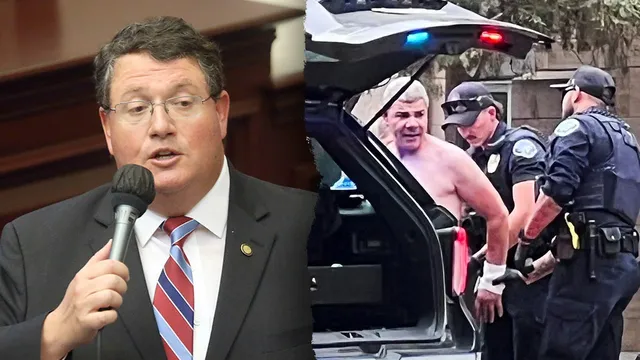
Boulder suspect faces severe charges for attack on Jewish activists
2025-06-03 19:24- Mohamed Soliman, an Egyptian national, was arrested for an attack during a pro-Israel demonstration, injuring multiple people.
- He is currently facing serious charges, including first-degree murder and a federal hate crime.
- The attack has led to calls for deportation from lawmakers and raised concerns over safety and extremism.
Express your sentiment!
Insights
In Boulder, Colorado, a man named Mohamed Soliman has been arrested and charged after allegedly launching a violent attack during a pro-Israel demonstration, which occurred on Sunday, June 1, 2025. The attack involved throwing Molotov cocktails, leading to injuries for eight individuals, including a Holocaust survivor. Soliman, originally from Egypt, was in the United States illegally after his tourist visa expired in February 2023. He had previously filed for asylum but took drastic actions following a year-long plan to carry out this attack. Authorities are also investigating whether his family was complicit in the crime. Soliman's actions have sparked outrage among various communities, prompting calls for deportation from representatives like Randy Fine, and raising concerns over extremist sentiments. The investigation is abetted by an ongoing review of video evidence from the attack’s aftermath, which showcased the chaos and panic during the event. The incident underscores broader issues about immigration, extremism, and the safety of Jewish communities in the U.S.
Contexts
The history of attacks on Jewish activists in the U.S. is a complex and troubling aspect of American social dynamics, reflecting broader issues of anti-Semitism and social justice activism. Over the years, Jewish activists have often found themselves the targets of harassment, violence, and discrimination. This violence has roots both in historic anti-Semitic sentiments and in contemporary disputes over issues such as Israel-Palestine relations, which have further polarized opinions and actions against Jewish communities. As activists have advocated for various causes, including civil rights, labor rights, and environmental issues, they have sometimes faced backlash not only for their political views but also for their ethnic identity, illustrating a troubling intersection of social justice and bigotry. Throughout the 20th century, the early days of Jewish activism saw both solidarity with labor movements and resistance to fascist ideologies during the rise of the Nazi regime. Groups such as the Workmen’s Circle and the Jewish Labor Bund played pivotal roles in advocating for rights and reforms but were often met with hostility. Following World War II, as the struggle for civil rights gained momentum, Jewish activists participated actively, aiding movements against racial discrimination. Despite their contributions, they were not immune to attacks; instances of violence and anti-Semitic rhetoric surfaced, particularly in the context of social upheavals throughout the 1960s and 70s. In more recent decades, as the political landscape in the U.S. has shifted, Jewish activists have continued to be caught in contentious debates, particularly surrounding Middle Eastern geopolitics. The Intifada movements in the territories led to increased scrutiny and backlash against Jewish voices in the U.S., often resulting in direct attacks at demonstrations and rallies. Organizations such as the Anti-Defamation League (ADL) have documented an increase in hate crimes and incidents against Jewish individuals, especially those outspoken against anti-Semitism or for Palestinian rights. Such incidents underline the dual challenges faced by Jewish activists: while advocating for certain political causes, they must also navigate the risks of arising anti-Semitic sentiments. The diverse experiences of Jewish activists in the U.S. reflect broader narratives of resilience and vulnerability. With the growing incidence of anti-Semitic rhetoric and violence, it is crucial for the community to strengthen ties with other marginalized groups, fostering a united front against hate. Education plays a critical role in dismantling stereotypes and misinformation that lead to targeted attacks. Activism, therefore, remains a double-edged sword for Jewish individuals—offering a platform for change while simultaneously exposing them to those who oppose their efforts. As we move forward, acknowledging and addressing the history of attacks on Jewish activists is vital not only for the safety of these individuals but for the larger goal of social justice that encompasses all marginalized communities.